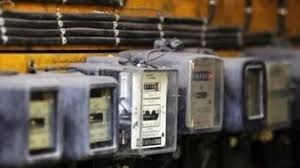Opposition parties hit the streets in Tripura over state government’s decision to install smart meters, introduce additional power surcharges

Agartala, July 15:
Political tension rose in Tripura this week as opposition parties hit the streets. They protested against the state government’s plan to install smart electricity meters and introduce new power surcharges. Leaders from the CPI(M), Congress, and regional outfits led the demonstrations. Hundreds of people marched across Agartala, accusing the BJP-led government of putting extra financial pressure on the public.
Public Backlash Over Smart Meters
Tripura State Electricity Corporation Limited (TSECL) recently announced the introduction of smart meters. Officials claim these meters will improve billing accuracy, reduce energy theft, and bring transparency. However, many residents fear higher bills and automatic disconnections.
CPI(M) leader Jitendra Chaudhury addressed protesters near the capital. He said, “Poor and middle-class families are already struggling. Now the government wants to install costly meters that will lead to inflated bills and quick disconnections.”
Opposition leaders argue that the government is forcing this change without consulting the public. They say smart meters will hurt low-income families by removing human oversight in billing and disconnection.
Power Surcharges Trigger Fresh Protests
Adding to public frustration, the government also introduced additional power surcharges. Officials say these charges will cover rising input costs and help upgrade the power system. But opposition leaders strongly disagree.
Congress spokesperson Tapas Dey called the move a “hidden tax.” He said, “Electricity is a basic right, not a luxury. The government is charging more without improving service quality.”
Leaders demanded that the government withdraw the surcharge. They also asked for a complete halt to the smart meter rollout until a public consultation takes place.
Protests Spread Across the State
The protests in Agartala triggered similar demonstrations in Udaipur, Dharmanagar, and Belonia. Protesters held placards with slogans like “Smart Meter, Smart Loot” and “Reject Surcharge, Save People.”
Many speakers pointed out that Tripura is a power-surplus state. They questioned why local residents are being charged more while the state exports power. A local trade union member asked, “If we generate excess electricity, why are we paying more for it?”
Government Defends Its Decision
The state government responded to the protests by defending its policies. Power Minister Ratan Lal Nath said smart meters are part of the Centre’s Revamped Distribution Sector Scheme (RDSS). The scheme aims to modernize India’s power sector.
“Our current system is outdated. Smart meters will reduce errors, provide accurate bills, and improve power load management,” said Nath. He added that the new surcharges are needed to cover operational gaps.
The minister also assured that existing subsidies for below poverty line (BPL) families and senior citizens will remain. These steps, he claimed, will protect vulnerable groups from added pressure.
Experts Call for Caution and Balance
Energy policy experts support modernization but warn against ignoring people’s concerns. “Technology is helpful, but only when it’s introduced with care,” said Anirban Dasgupta, a public policy analyst in Guwahati. “The government must educate consumers and allow feedback.”
He said sudden surcharge hikes could hit families already dealing with inflation. “Authorities should explain bills clearly and offer support to those who can’t afford sudden increases,” he added.
Civil Society Raises Red Flags
Activists also raised concerns about the lack of public participation in the rollout. “This is not just a technical issue. It’s a matter of governance and fairness,” said Pratima Laskar of the Tripura Human Rights Forum.
She urged the government to conduct audits of smart meter pilot programs. Laskar also asked for an independent body to monitor billing issues and handle complaints.
Political Implications Ahead of Polls
Tripura is heading for local body elections later this year. Political observers say this issue could affect voter sentiment. Opposition parties plan to campaign against the smart meter decision and surcharge hikes in urban and semi-urban areas.
“This policy could become a major election issue,” said political analyst Arindam Dutta. “People see it as an example of poor planning and lack of communication.”
He noted that voters often react strongly to sudden changes in essential services, especially when costs rise without clear benefits.
Conclusion
The protests in Tripura highlight the gap between technological upgrades and public trust. Smart meters and better infrastructure can help the power sector. But changes must be gradual, fair, and well-explained.
Without public input and support, even good policies can spark anger. The state government now faces a choice: push ahead with its plan or listen to the people and adjust course. How it responds may shape Tripura’s political and social landscape in the months ahead.






